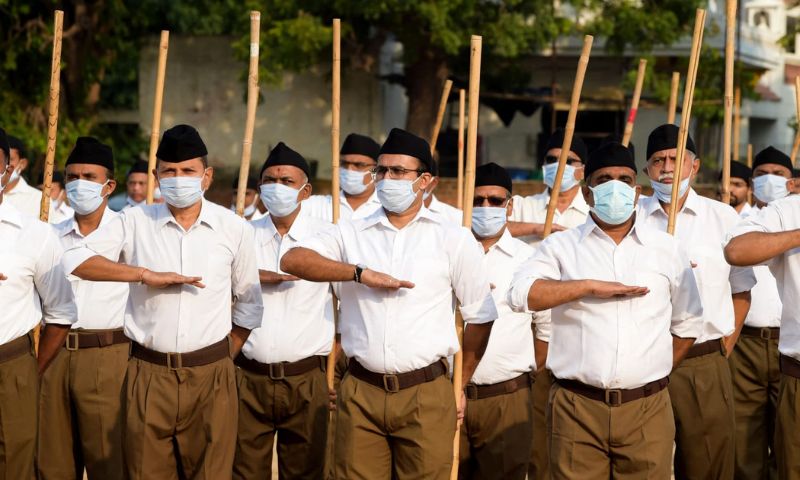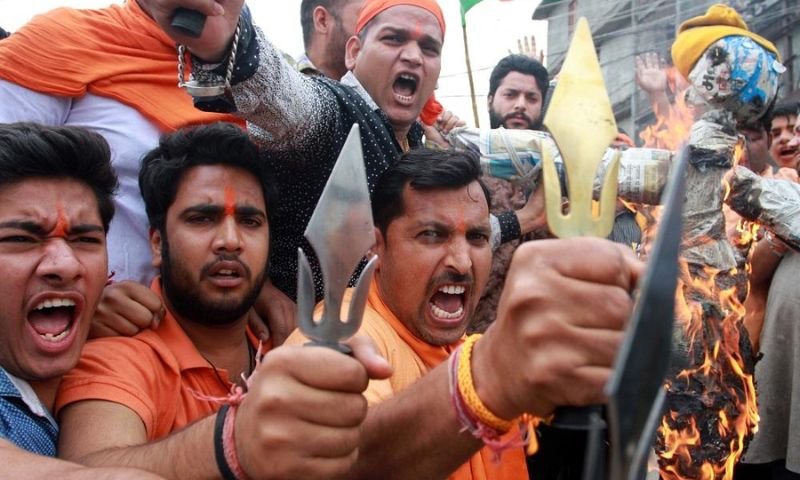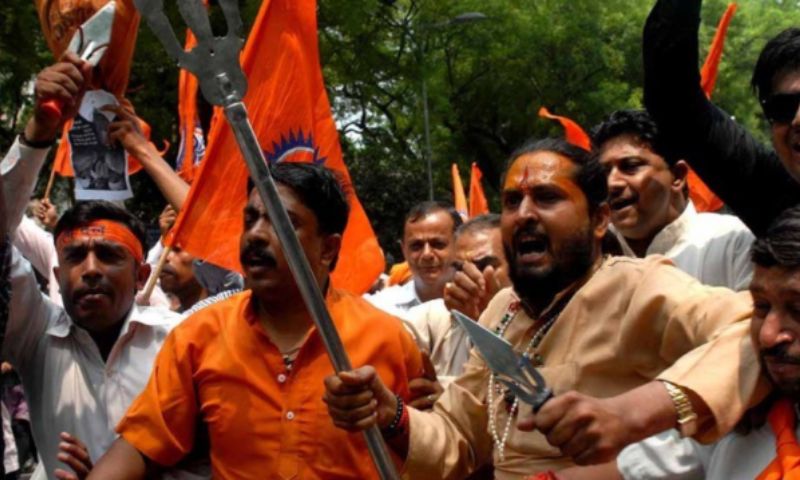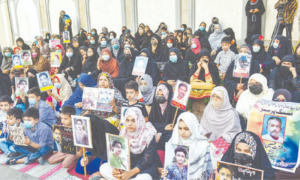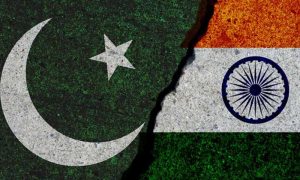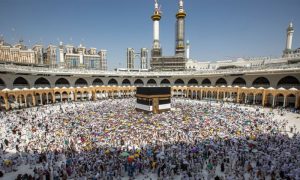Hindutva’s ascent to dominance in India has brought significant sociopolitical and security threats for the Muslim minority inside the Indian Union as well as the Muslim-majority neighboring states of Pakistan, Bangladesh, and Afghanistan. Its aggressive and violent tactics have undermined the autonomy, peace, and security of the Muslim majority states in South Asia. It has also taken several discriminatory efforts to subjugate the Muslim minority to the Hindu majority within the nation. Because Hindus are believed to be of Aryan descent and adhere to the ancient religion of the Indian people, the Hindutva ideology views only Hindus as authentic sons of the soil.
For this reason, the Sangh Parivar, Rashtriya Swayamsevak Sangh (RSS), Vishva Hindu Parishad (VHP), and Bharatiya Janata Party (BJP) are among the groups that promote the Hindutva ideology. They contend that in their idealized Hindu state, only Hindus should have the sociopolitical rights of citizens. At the same time, followers of other religions like Christianity and Islam should be treated as second-class citizens. Muslims had ruled India for a millennium and introduced novel ideas and concepts to the indigenous civilization, so Muslims are particularly viewed as a threat to others. The goal of the Hindu agenda is to eliminate any representation of Muslim authority in India and to degrade Muslims in that country on a social and political level.
The Bharatiya Janata Party (BJP), led by Prime Minister Narendra Modi, won elections in 2014 and 2019, leaving almost 200 million Indian Muslims without representation in the Indian Parliament or the ruling party. The Sangh Parivar took advantage of the lack of Muslim representation in the 545-member Lok Sabha to marginalize Indian Muslims in the political, religious, trade, educational, and military domains. Only 27 Muslim candidates from other parties were elected to the assembly. Vigilante groups like the Bhartiya Gau Raksha Dal carried out violent crimes against Muslims under the guise of Gau Raksha, or the protection of the cow. These activities were tolerated.
Because of the general climate of fear and persecution, Indian Muslims were subjected to harassment through campaigns such as “Love Jihad” and “Ghar Wapsi,” which further exacerbated their marginalization. In addition, the triple talaq law passed by the Modi government and the ruling in the Babri Masjid case by the Supreme Court demonstrated the beginnings of a Hindu state. This culminated in the contentious Citizenship Amendment Act of December 2019, which marked a substantial break from India’s secular ideals by explicitly excluding Muslims from its provisions.
The Parliament of India passed the Citizenship (Amendment) Act, 2019 on 11 December 2019. It amended the Citizenship Act, of 1955 by providing an easy way to Indian citizenship for religious minorities from Afghanistan, Bangladesh, and Pakistan who arrived in India by 2014. India’s stance on immigration and citizenship underwent a dramatic shift in 2019 with the passage of the Citizenship Amendment Act (CAA) by Parliament. For non-Muslim immigrants who came to India before December 31, 2014, citing religious persecution, the CAA expedites the citizenship process from adjacent countries, namely Afghanistan, Bangladesh, and Pakistan. Civil society organizations and human rights organizations have widely condemned this selective citizenship policy that is based on religion. The Indian Constitution’s cherished ideals of secularism and equality are allegedly violated by the CAA, according to its detractors.
The administration has steadfastly maintained that the CAA is an essential step in defending oppressed minorities from nearby nations, even in the face of criticism. The law’s humanitarian component has been highlighted by Home Minister Amit Shah, who has framed it as an act of solidarity with people escaping religious persecution. Many, however, are not persuaded by these explanations and see the CAA as a blatant attempt by the BJP to push its Hindu nationalist agenda.
Concerns have also been expressed over the possible introduction of the National Register of Citizens (NRC), which intends to locate and expunge unauthorized immigrants living in India. Opponents worry that Muslim populations may be singled out and marginalized as a result of the CAA and NRC’s combined application, so leaving them stateless and open to persecution.
India finds itself at a pivotal point in its history, where the values of secularism, diversity, and inclusivity are in jeopardy. India’s democratic ideals are under threat, and the continuous fight for minority communities’ rights and dignity highlights the critical need for alertness and coordinated action. India can only become the pluralistic and inclusive democracy it has promised to be if it makes a determined effort to protect the values of justice and equality.













